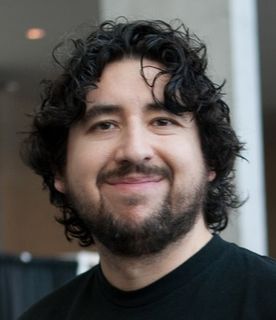A Quote by John Gruber
I've heard that it's some kind of weird two-lens system where the back camera uses two lenses and it somehow takes it up into DSLR quality imagery.
Related Quotes
This uses a lens system, which I have used for years in various different ways, but I've never used it in the context of an interview. This is the very first time that I've done that. It's a lens called The Revolution, so it allowed me to interview Elsa [Dorfman] and actually operate the camera. Well one of the cameras, because there were four cameras there.
I have some advantages of viewing from the two lenses, the two perspectives. I think that a lot of visual artists who come back here from the United States and are Cambodian also write from their American references - looking inside the old culture, and looking at themselves as an American looking into the country where they were born.
Leica are known for their still camera lenses and in the last year and a half have come out with a series of film lenses and they are brilliant. The best thing about them, apart from their quality, which is uniform, is that each one is the same size, pretty much the same weight... So in terms of fitting into the rig, everything is almost purpose built for that and the quality is beautiful, really beautiful.
The difference between an amateur and a professional photographer is that the amateur thinks the camera does the work. And they treat the camera with a certain amount of reverence. It is all about the kind of lens you choose, the kind of film stock you use… exactly the sort of perfection of the camera. Whereas, the professional the real professional – treats the camera with unutterable disdain. They pick up the camera and sling it aside. Because they know it’s the eye and the brain that count, not the mechanism that gets between them and the subject that counts.
We have two boys, and one of our kids is much more interested in history and stories, so if you want him to do some calculations about lenses, you would start talking to him about Galileo... Then he would be into the lenses, but if you just start talking to him about lenses, he might not stay with you.






































